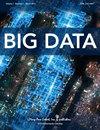Using an Exploratory Analytical Approach to Distinguish the Habits of Graduating and Non-Graduating Students in a Virtual Learning Environment
IF 2.6
4区 计算机科学
Q2 COMPUTER SCIENCE, INTERDISCIPLINARY APPLICATIONS
引用次数: 0
Abstract
Understanding student behaviour is crucial for creating personalised learning and other interventions. Educational stakeholders continue investigating diverse solutions to improve student learning behaviour in higher educational institutions. One solution that stands out is to gain insights and identify the trends and patterns in data about students learning behaviour for decision-making. Exploratory Data Analysis (EDA) is a method for analysing and summarising data in order to get insights and recognise patterns or trends about an entity. This study seeks to utilise Exploratory Data Analysis to analyse students' logs in the virtual learning environment to distinguish the characteristics/habits of students who graduate and students who do not graduate from higher educational institutions. The process flow for implementing EDA can act as a helpful guide for educational stakeholders. The study findings indicate that the revision trend of graduated students is much more frequent than that of non-graduated students. However, there were no differences in habits in the early access to the learning materials before the start of the program. Academic stakeholders can utilise the approach to enable them to make better decisions when assessing students' behaviour and trends in the virtual environment.运用探索性分析方法区分虚拟学习环境中毕业生和非毕业生的习惯
了解学生的行为对于创建个性化学习和其他干预措施至关重要。教育利益相关者继续研究各种解决方案,以改善高等教育机构的学生学习行为。一个突出的解决方案是,从学生学习行为的数据中获得洞察力,并确定趋势和模式,以供决策。探索性数据分析(EDA)是一种分析和总结数据的方法,目的是洞察和识别实体的模式或趋势。本研究试图利用探索性数据分析来分析学生在虚拟学习环境中的日志,以区分毕业和未毕业的学生的特征/习惯。实现EDA的流程流可以作为教育涉众的有用指南。研究结果表明,大学毕业生的复习趋势明显高于非大学毕业生。然而,在项目开始前,在早期接触学习材料的习惯上没有差异。学术利益相关者可以利用这种方法,使他们在评估学生在虚拟环境中的行为和趋势时做出更好的决策。
本文章由计算机程序翻译,如有差异,请以英文原文为准。
求助全文
约1分钟内获得全文
求助全文
来源期刊

Big Data
COMPUTER SCIENCE, INTERDISCIPLINARY APPLICATIONS-COMPUTER SCIENCE, THEORY & METHODS
CiteScore
9.10
自引率
2.20%
发文量
60
期刊介绍:
Big Data is the leading peer-reviewed journal covering the challenges and opportunities in collecting, analyzing, and disseminating vast amounts of data. The Journal addresses questions surrounding this powerful and growing field of data science and facilitates the efforts of researchers, business managers, analysts, developers, data scientists, physicists, statisticians, infrastructure developers, academics, and policymakers to improve operations, profitability, and communications within their businesses and institutions.
Spanning a broad array of disciplines focusing on novel big data technologies, policies, and innovations, the Journal brings together the community to address current challenges and enforce effective efforts to organize, store, disseminate, protect, manipulate, and, most importantly, find the most effective strategies to make this incredible amount of information work to benefit society, industry, academia, and government.
Big Data coverage includes:
Big data industry standards,
New technologies being developed specifically for big data,
Data acquisition, cleaning, distribution, and best practices,
Data protection, privacy, and policy,
Business interests from research to product,
The changing role of business intelligence,
Visualization and design principles of big data infrastructures,
Physical interfaces and robotics,
Social networking advantages for Facebook, Twitter, Amazon, Google, etc,
Opportunities around big data and how companies can harness it to their advantage.
 求助内容:
求助内容: 应助结果提醒方式:
应助结果提醒方式:


